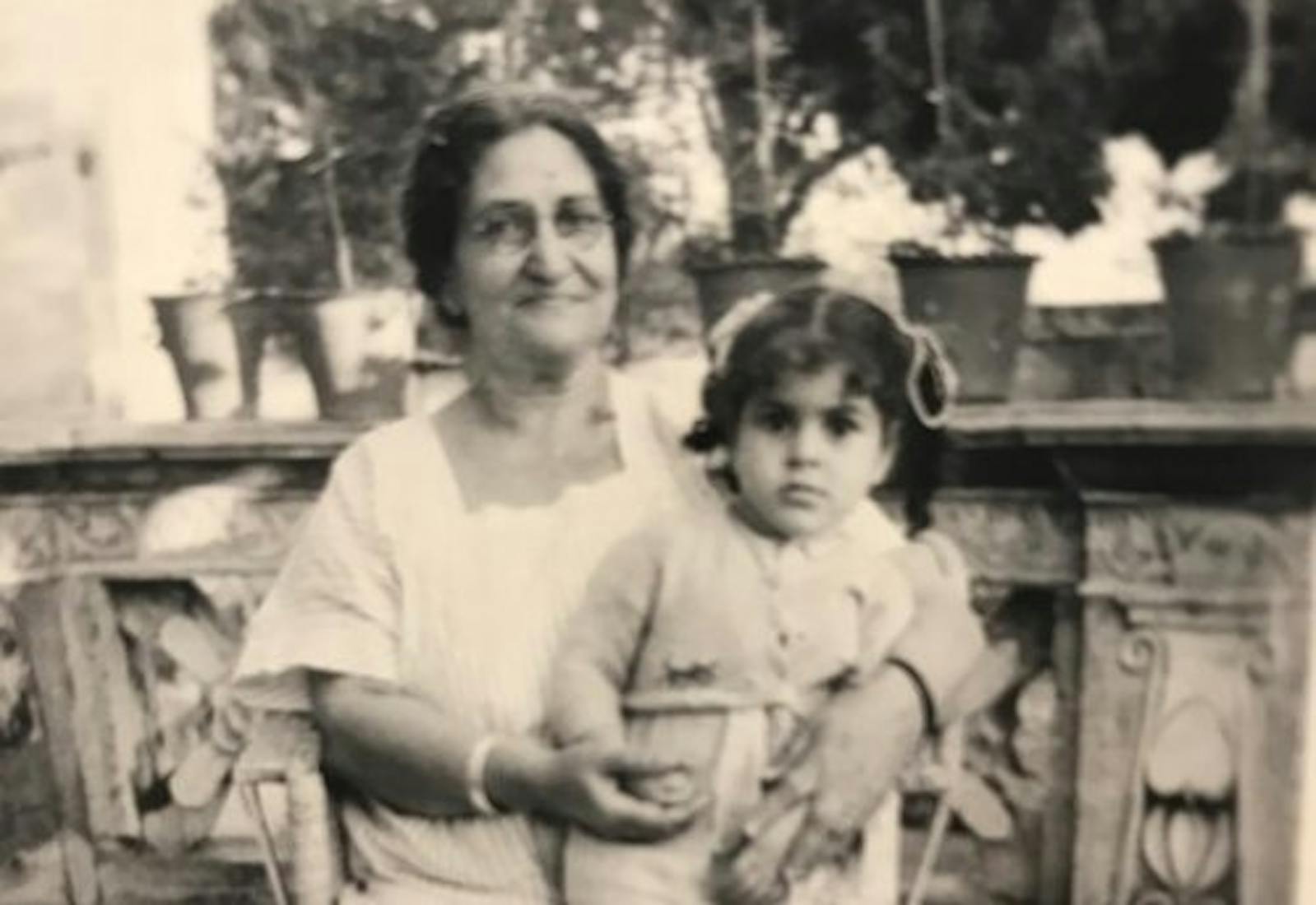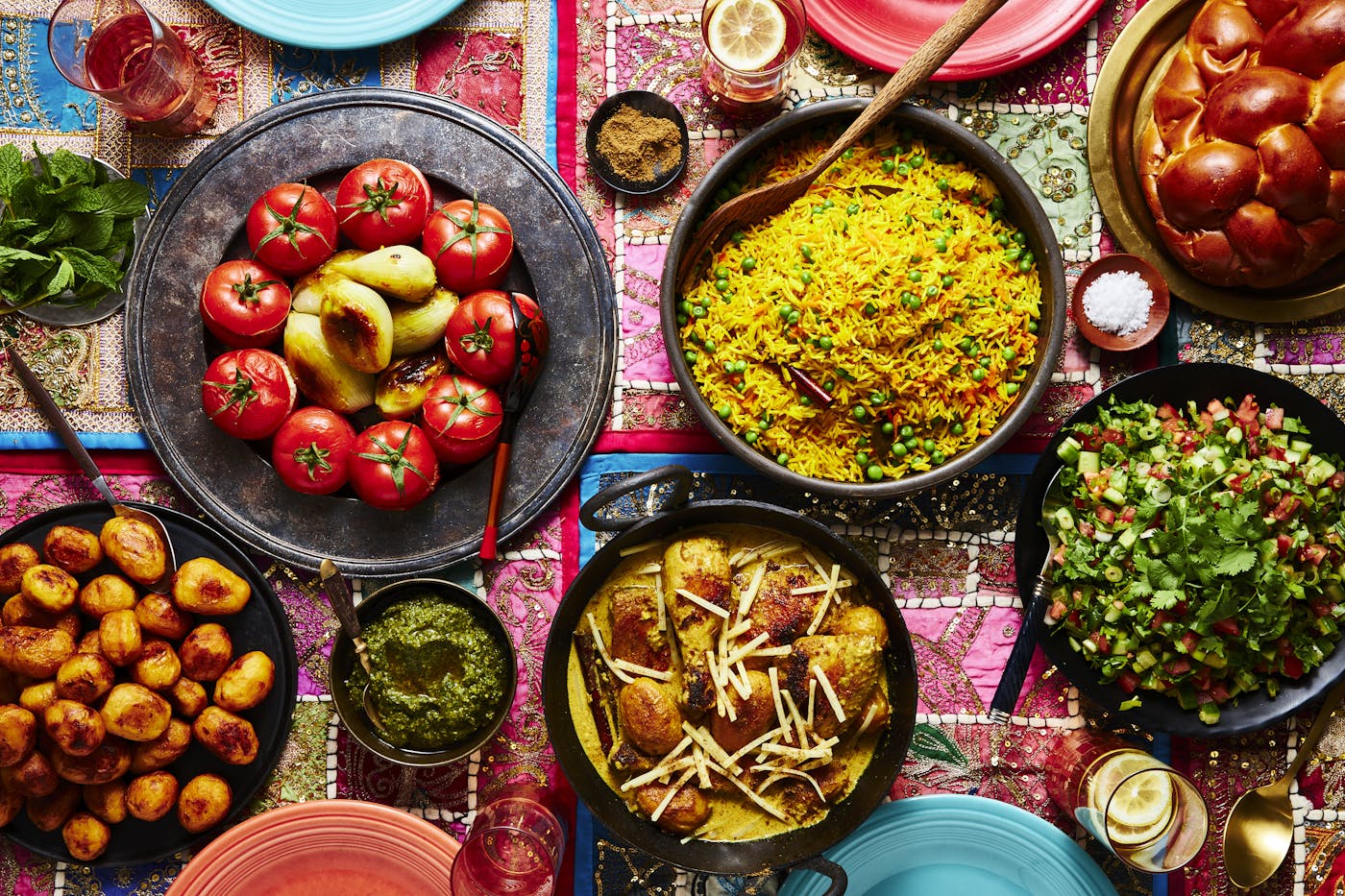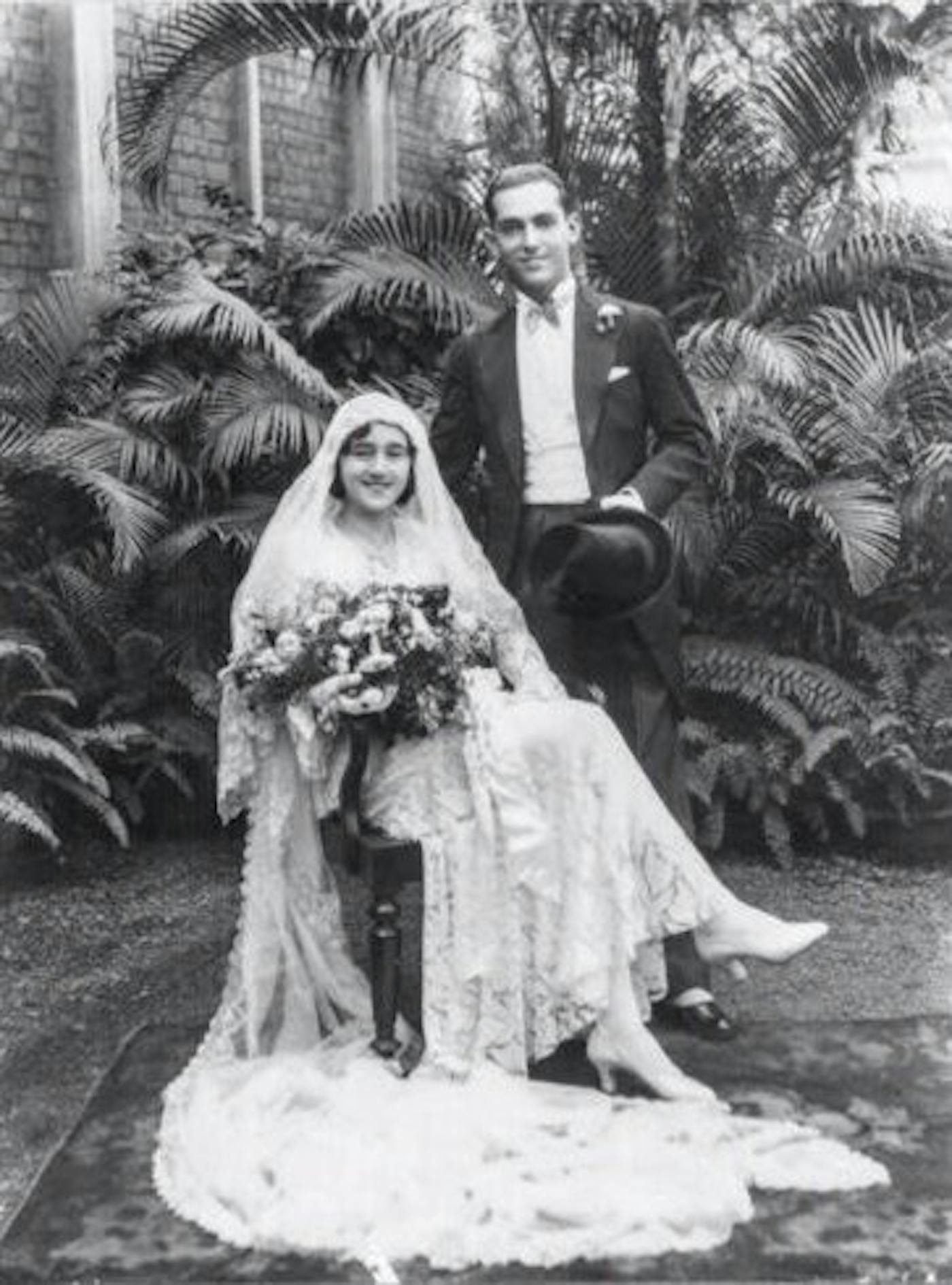Shared by Elli Benaiah


Read more about Elli Benaiah in “How One Cook in Switzerland Is Preserving the Flavors of India’s Baghdadi Jews” and try his recipes for Indian-Baghdadi shabbat salad, halba (fenugreek relish), and kachori (spiced pea dumpling).
Elli Benaiah’s family Shabbat table is a blend of Iraqi and Indian flavors: There's aloo makala or potatoes cooked with turmeric, chicken curry, rice pilau, and stuffed tomatoes and onions called mahasha spiced with fresh ginger and coriander. When Elli was growing up, these dishes were served every Shabbat. Today, the elaborate meal is saved for special occasions, prepared by him in Basel, Switzerland, by his sister in Melbourne, and his brother and mother in Israel.
These recipes come from a small community known as the Baghdadi Jews of India, Indian-Baghdadis Jews, or simply Baghdadis, which traces its origins to 1730 when a man named Joseph Semah moved from Baghdad to Surat, a city north of modern day Mumbai, according to professor Shalva Weil of Hebrew University who has written extensively on the Baghdadi Jews of India. By the mid-19th century thousands of Jews from Iraq, Afghanistan, and Syria migrated to India, escaping persecution under the rule of ruler Daud Pasha and seeking business opportunities.
Approximately 6,000 in total, Shalva says, settled in Kolkata in the east, what is now Mumbai in the west, and inland in Pune, with just a few settling in Kochi in the south. The community worked successfully as traders and merchants with the British selling cotton and opium among other goods. Deeply connected to the British, most Baghdadis left as India gained independence in 1947. “They realized they didn’t have a future in India,” Shalva explains, and resettled in Australia, England, the United States, and Israel.
Elli, a lawyer and caterer who grew up in Israel, is determined to preserve their culinary heritage. “I think it’s wonderful,” he says. “And it’s sad that if it disappears, no one will ever know it existed.” He’s kept the stories and recipes of his grandmother Ruby alive at his table and those he caters for through his company Numnum Dellicious.
Ruby’s parents emigrated from Iraq, settling in Kolkata where she was born. She later married Elli’s grandfather whose family was part of the Indian Jewish community of Kochi or Cochin in the south of the country, which traces its roots to, some say, biblical times. In Kolkata as a young bride, Ruby didn’t cook. Instead, she was the mistress of the kitchen, Elli explains. Like many well to do Jewish families in India at the time, she oversaw a staff of Indian women who worked in her home, instructing them on Iraqi Jewish dishes and culinary traditions.
Using what was available in the markets in India, these cooks recreated Iraqi dishes with local ingredients, developing a new cuisine. “To my mind, historically, Iraqi-Indian cuisine is both uniquely Jewish and uniquely Indian,” Elli explains. “It’s new to the Indians, it’s new to the Iraqis, [and] it’s certainly new to Jewish kitchens.”
There are dishes like the aloo makala, or crispy potatoes made with turmeric, whose name itself is a hybrid of traditions: aloo meaning potato in Hindi and makala from old Iraqi Arabic meaning fried, says Elli. “There’s no parallel to this in any place in the world I can think of. It doesn’t exist in Iraq, it doesn’t exist in India.” The dish is served for Friday night dinner with halba, a fenugreek chutney made with coriander and ginger.
Fresh ginger and coriander are common threads in another dish Elli shared from the community. In India, they were added to mahasha, or stuffed tomatoes and onions, that are popular throughout parts of the Middle East. In Elli’s family, these dishes served with rice pilau and spayty, a curry made with bamboo and coconut cream, and spiced with cardamom, cinnamon, cumin, and paprika.
When Elli’s grandparents moved to London from India, Ruby didn’t know how to cook them, but she brought the flavors of the Baghdadi Jews with her and in time, she become renowned for her cooking. “She became my food inspiration,” Elli adds.
His mother Eva, whose family is German, diligently studied at her mother-in-law Ruby’s side and brought her recipes to Israel where the family immigrated when Elli was little. More than 2,000 miles from Ruby’s kitchen, the Benaiah family continued to eat the same Shabbat feast each week. “The food became part and parcel of the family menu,” Elli explains, passed down orally and through a handwritten cookbook. “My mother has this recipe book in the handwriting of so many different Indian-born women who preserved those recipes in their homes,” he adds.
Elli estimates that there are less than 100 people from his community left in Kolkata today, but the recipes, at least in his family, have lived on around the world. “Some cultures are known by music. Some cultures are known by thoughts, books, ideas. In this culture, the food was something that was tattooed in the nostalgia of people,” Elli says.

